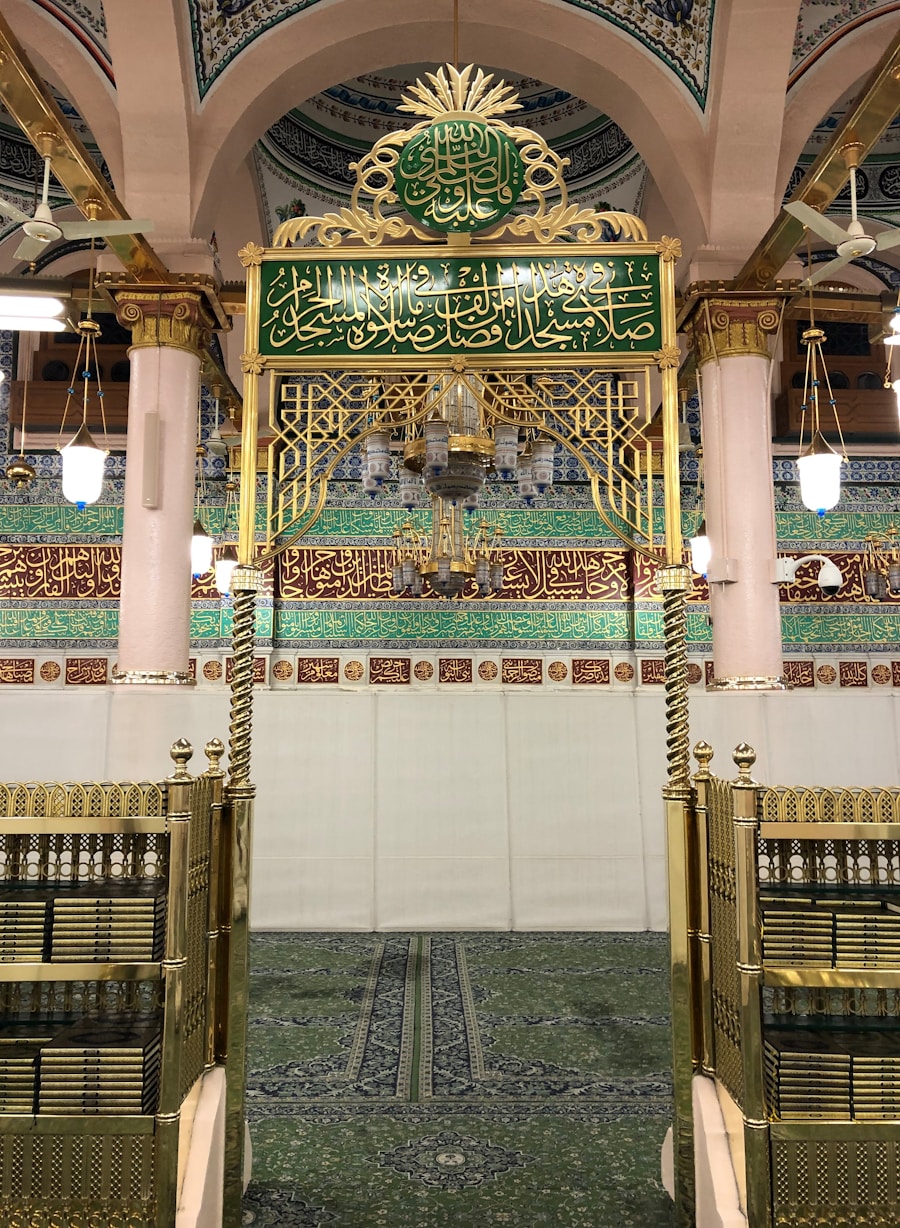Embarking on a pilgrimage is a profound experience that requires careful planning and preparation.
A lack of adequate preparation can manifest in various ways, from physical unfitness to insufficient knowledge about the destination.
For instance, a pilgrim who has not trained physically may find themselves exhausted and unable to complete the journey, which can lead to frustration and disappointment. The physical demands of a pilgrimage often require endurance and stamina, especially when traversing long distances on foot or navigating challenging terrains. Moreover, inadequate preparation can also extend to logistical aspects such as travel arrangements, accommodation, and understanding local customs.
Pilgrims who fail to research their route may encounter unexpected obstacles, such as closed paths or unanticipated weather conditions. This lack of foresight can lead to missed opportunities for spiritual reflection and connection with fellow pilgrims. Additionally, understanding the cultural context of the pilgrimage destination is crucial.
For example, a pilgrim visiting a site with specific dress codes or behavioral expectations may inadvertently offend local customs due to ignorance. Thus, thorough preparation is essential not only for physical readiness but also for fostering a respectful and enriching pilgrimage experience.
Key Takeaways
- Not preparing adequately for the journey:
- Lack of research and planning can lead to unnecessary stress and difficulties during the pilgrimage.
- It is important to familiarize oneself with the route, weather conditions, and local customs before embarking on the journey.
- Neglecting to learn the rituals and procedures:
- Understanding the rituals and procedures of the pilgrimage is crucial to fully participate and benefit from the spiritual experience.
- Ignorance of the proper etiquette and behavior can lead to unintentional disrespect and misunderstanding.
- Overpacking and carrying unnecessary items:
- Traveling light is essential for a smooth and comfortable pilgrimage experience.
- Bringing only the essentials and avoiding unnecessary items can make the journey more manageable and enjoyable.
- Ignoring health and safety precautions:
- Prioritizing health and safety is crucial for a successful pilgrimage.
- Neglecting to take necessary precautions can lead to illness or injury, impacting the overall experience.
- Failing to maintain a respectful and patient attitude:
- Showing respect and patience towards fellow pilgrims and the local community is essential for a harmonious pilgrimage.
- Keeping a positive and open-minded attitude can enhance the spiritual journey for oneself and others.
Neglecting to learn the rituals and procedures
Every pilgrimage is steeped in rituals and procedures that hold deep spiritual significance. Neglecting to learn these practices can lead to a superficial experience that misses the essence of the journey. For instance, many religious sites have specific rituals that pilgrims are expected to observe, such as prayers, offerings, or meditative practices.
A pilgrim who is unaware of these rituals may find themselves feeling disconnected from the spiritual atmosphere of the site. This disconnection can hinder the transformative potential of the pilgrimage, as rituals often serve as gateways to deeper understanding and connection with the divine. Furthermore, learning about the rituals and procedures also fosters a sense of community among pilgrims.
Engaging in shared practices can create bonds between individuals who may come from diverse backgrounds but share a common purpose. For example, during the Hajj pilgrimage in Islam, millions of pilgrims perform specific rituals such as Tawaf (circumambulating the Kaaba) and Sa’i (walking between the hills of Safa and Marwah). These acts are not merely physical; they are imbued with historical and spiritual significance that connects pilgrims to their faith and to each other.
By neglecting to learn these rituals, one risks missing out on the communal aspect of the pilgrimage, which can be one of its most enriching elements.
Overpacking and carrying unnecessary items

The act of overpacking is a common pitfall for many pilgrims embarking on their journey. In an attempt to prepare for every possible scenario, individuals often load their bags with unnecessary items that can weigh them down both physically and mentally. The burden of excess baggage can transform what should be a liberating experience into one of discomfort and fatigue.
For instance, carrying heavy backpacks filled with non-essential clothing or gadgets can lead to physical strain, making it difficult to focus on the spiritual aspects of the pilgrimage. The journey becomes less about introspection and more about managing discomfort. Moreover, overpacking can also detract from the minimalist mindset that many pilgrims seek to cultivate during their journey.
Pilgrimages often encourage individuals to shed material attachments and embrace simplicity. By bringing along too many items, pilgrims may inadvertently cling to their possessions rather than engaging fully with their surroundings and fellow travelers. A more thoughtful approach involves packing only essentials—items that serve a clear purpose in supporting both physical needs and spiritual growth.
This minimalist approach not only lightens the load but also fosters a deeper connection with the pilgrimage experience itself.
Ignoring health and safety precautions
Health and safety should be paramount considerations for anyone undertaking a pilgrimage. Ignoring these precautions can lead to serious consequences that may jeopardize not only the individual’s well-being but also the overall experience of the pilgrimage. For example, neglecting to stay hydrated during long walks can result in dehydration, fatigue, or even heatstroke, particularly in regions with extreme weather conditions.
Pilgrims must be aware of their physical limits and take proactive measures to ensure their health throughout the journey. In addition to physical health, safety precautions are equally important. Pilgrims should familiarize themselves with potential risks associated with their destination, such as local wildlife, environmental hazards, or even political instability in certain regions.
Understanding these risks allows pilgrims to make informed decisions about their routes and activities. Furthermore, having access to basic first aid supplies and knowing how to use them can be invaluable in case of minor injuries or illnesses during the journey. By prioritizing health and safety, pilgrims can focus on their spiritual objectives without unnecessary distractions or concerns.
Failing to maintain a respectful and patient attitude
A pilgrimage is not just a personal journey; it is also a communal experience that involves interaction with fellow pilgrims and local communities. Failing to maintain a respectful and patient attitude can lead to misunderstandings and conflicts that detract from the overall experience. Pilgrims often come from diverse backgrounds, each bringing their own beliefs, customs, and expectations.
Approaching these differences with respect fosters an environment of mutual understanding and camaraderie. Patience is particularly crucial during a pilgrimage, where delays and unexpected challenges are common. Whether it’s waiting in line for entry into a sacred site or dealing with logistical hiccups, maintaining composure is essential for personal well-being as well as for fostering positive interactions with others.
Embracing patience allows individuals to navigate challenges gracefully while remaining open to the lessons that arise from shared experiences.
Disregarding the sanctity of the holy sites

Holy sites are often revered spaces that hold deep spiritual significance for millions of people around the world. Disregarding their sanctity can not only offend those who hold these sites dear but also diminish the spiritual experience for oneself. Pilgrims must approach these locations with reverence and mindfulness, recognizing that they are stepping into spaces that have been sanctified by centuries of faith and devotion.
For instance, at sites like Jerusalem’s Western Wall or Mecca’s Kaaba, specific behaviors are expected—such as maintaining silence during prayer or dressing modestly—that reflect respect for the sacredness of these places. Moreover, understanding the historical context of these sites enhances one’s appreciation for their significance. Many holy sites are steeped in rich narratives that connect them to pivotal moments in religious history.
By taking time to learn about these stories, pilgrims can deepen their connection to the site and engage more meaningfully with their surroundings. Disregarding this context not only undermines one’s own experience but also disrespects the collective memory of those who have come before them in search of spiritual fulfillment.
Not following the rules and regulations set by the authorities
Every pilgrimage destination typically has established rules and regulations designed to ensure safety, respect, and order among visitors. Failing to adhere to these guidelines can lead to negative consequences for both individuals and groups. For example, many religious sites have specific visiting hours, dress codes, or behavioral expectations that must be followed.
Ignoring these rules not only risks penalties but also disrupts the sanctity of the space for others who are there to engage in meaningful worship or reflection. Additionally, following established regulations helps maintain harmony within diverse groups of pilgrims who may have varying levels of familiarity with local customs. When everyone adheres to common guidelines, it fosters an atmosphere of respect and cooperation among participants.
This collective adherence enhances the overall experience by allowing individuals to focus on their spiritual objectives rather than navigating conflicts arising from rule violations. Ultimately, respecting these regulations reflects a commitment to honoring both the sacredness of the site and the shared journey of all pilgrims.
Forgetting to seek guidance from experienced pilgrims or scholars
The wisdom gained from those who have previously undertaken similar journeys can be invaluable for new pilgrims seeking guidance on their path. Forgetting to seek advice from experienced individuals—whether they are seasoned pilgrims or knowledgeable scholars—can result in missed opportunities for learning and growth. These mentors often possess insights into practical aspects of the pilgrimage as well as deeper spiritual understandings that can enrich one’s experience.
For instance, experienced pilgrims may offer tips on navigating challenging terrains or suggest meaningful rituals that enhance spiritual engagement at specific sites. Scholars familiar with religious texts or historical contexts can provide interpretations that deepen one’s understanding of the significance behind certain practices or locations. Engaging with these resources not only prepares individuals for practical challenges but also fosters a sense of connection within a broader community of faith.
By valuing the experiences and knowledge of others, pilgrims can embark on their journeys with greater confidence and purpose, ultimately enhancing their spiritual exploration along the way.
When embarking on a spiritual journey like Hajj and Umrah, it is important to be well-prepared and avoid common mistakes that can hinder the experience. One related article that provides valuable insights on travel preparation is “The Ultimate Cheat Sheet on Travel” from Royal Aurora Tours. This article offers tips and tricks to ensure a smooth and stress-free travel experience, which can be especially beneficial when undertaking a pilgrimage like Hajj and Umrah. By following the advice in this article, pilgrims can avoid unnecessary pitfalls and focus on the spiritual significance of their journey.
FAQs
What are the common mistakes to avoid while performing Hajj and Umrah?
Some common mistakes to avoid while performing Hajj and Umrah include not following the prescribed rituals, neglecting the rights of other pilgrims, engaging in worldly activities, and not maintaining a state of ihram properly.
Why is it important to avoid these mistakes?
Avoiding these mistakes is important because Hajj and Umrah are acts of worship and should be performed with sincerity and devotion. Neglecting the prescribed rituals and rights of other pilgrims can invalidate the pilgrimage and diminish its spiritual significance.
How can pilgrims ensure they are not making these mistakes?
Pilgrims can ensure they are not making these mistakes by seeking knowledge about the rituals of Hajj and Umrah, being mindful of their actions and intentions, and seeking guidance from knowledgeable scholars or experienced individuals.
What are some other common mistakes to avoid during Hajj and Umrah?
Other common mistakes to avoid during Hajj and Umrah include excessive spending, engaging in arguments or disputes, neglecting personal hygiene, and not being patient and tolerant towards others.
What is the significance of performing Hajj and Umrah correctly?
Performing Hajj and Umrah correctly is significant because it is a form of worship and obedience to Allah. It is also an opportunity for spiritual purification, seeking forgiveness, and strengthening one’s faith. Performing the pilgrimage correctly can bring about immense spiritual rewards and blessings.



0 Comment